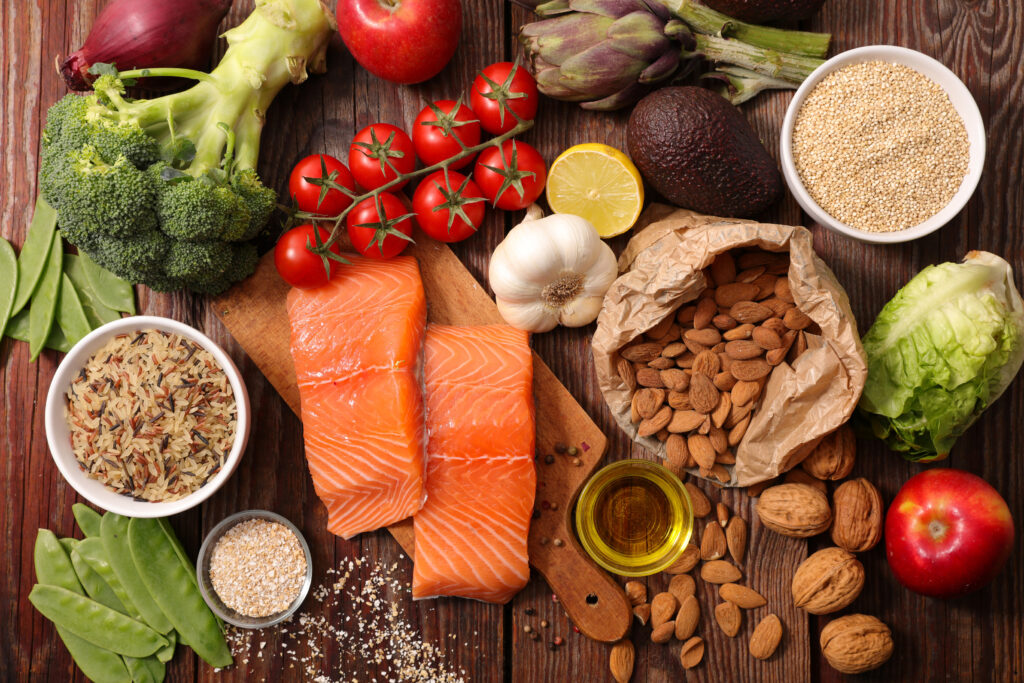
What customers want now: a wholesome, whole foods approach to better health
The Sustainable Restaurant Association highlights the prevailing trends when it comes to healthy food and explores how your restaurant can craft a menu that meets the demands of your customers.
Flexitarian is the new vegan
While veganism has remained one of the biggest food trends across much of the last decade, attitudes towards plant-based eating show signs of a significant shift. GWI reports that, since mid-2021, interest in vegan food has declined. While over one in four Europeans expresses interest in reducing their meat consumption, just 7% now identify as either vegan, vegetarian or pescatarian. Meanwhile, the number of Europeans identifying as flexitarian has risen by 13% year-on-year.
The good news is that customers are also more concerned about food production and how dietary choices affect both their own health and that of the planet. The adoption of plant-based diets that we’ve seen over the past decade is growing into a more holistic approach that goes beyond reducing meat and fish consumption– people want to know where their food comes from and how is was grown, caught, farmed or produced.
Plant-based, but make it pure
With more media coverage about ultra-processed foods (UPFs), people are turning away from meat alternatives with long, complicated ingredients lists. Whole Foods Market predicts shrinking labels across the category in 2024, with a greater focus on whole-food options made from things like mushrooms, nuts, tempeh and legumes. Supporting this, Mintel reports that consumers across the globe are increasingly demanding transparency in their food and choosing natural, ‘pure’ foods over processed ones.
An holistic approach to personal health
Personal diets are no longer solely about weight management. Consumers want nourishing foods that support overall physical and mental health, including those that nurture their gut microbiomes. More than 80% of consumers in China, the UK and the USA consider gut health to be important, while over 50% anticipate making it a higher priority in the next 2-3 years.
Wondering how all of this translates to your menu? Read on…
1. Put more on the menu
Making plant-based options a greater proportion of your menu not only provides more choice for those looking for a meat-free meal, but also helps to ‘normalise’ plant-based eating. Research shows that this increases the likelihood of people choosing these options.
2. Think flexitarian
Make flexitarianism your guiding light. Offer a wide range of plant-based options across your menu, with the choice to add meat or fish as an extra. This will cater for every palate and prioritises a growing demographic of people who are eating less meat and dairy without cutting them out altogether.
3. Focus on whole foods
Serve whole food, plant-based vegan options rather than ultra-processed meat substitutes. Think mushrooms, tofu (and its cousins seitan and tempeh), nuts, seeds and plenty of vegetables. Beans and other pulses are a fantastic option for healthy plant-based protein; they offer fibre, slow-release carbohydrates and a wealth of vitamins and minerals, and play a valuable role in digestive health.
4. Is it delicious?
Like any other guest in your restaurant, meat-free eaters want something that is truly delectable – especially now, when going out to eat is a special-occasion treat for many. Make your flavours big and bold, experiment with contrasting textures and aim to tick as many “delicious” boxes as possible: think crunchy, gooey, spicy, rich, silky, creamy or crisp.
5. Ramp up the nutrition
Consider what people might be seeking within their own personalised versions of a healthy diet. While making health claims on menus can be tricky (and it’s crucial that any such claims are 100% transparent and verifiably correct), you can meet your guests’ needs simply by ensuring that your selection includes lean proteins, healthy fats like omega-3s, dishes with multiple portions of fruits and vegetables and gut-friendly ingredients like fermented foods and whole grains.
For more insights and advice on building sustainability into your operations, check out www.thesra.org or follow The Sustainable Restaurant Association on Instagram and LinkedIn.

